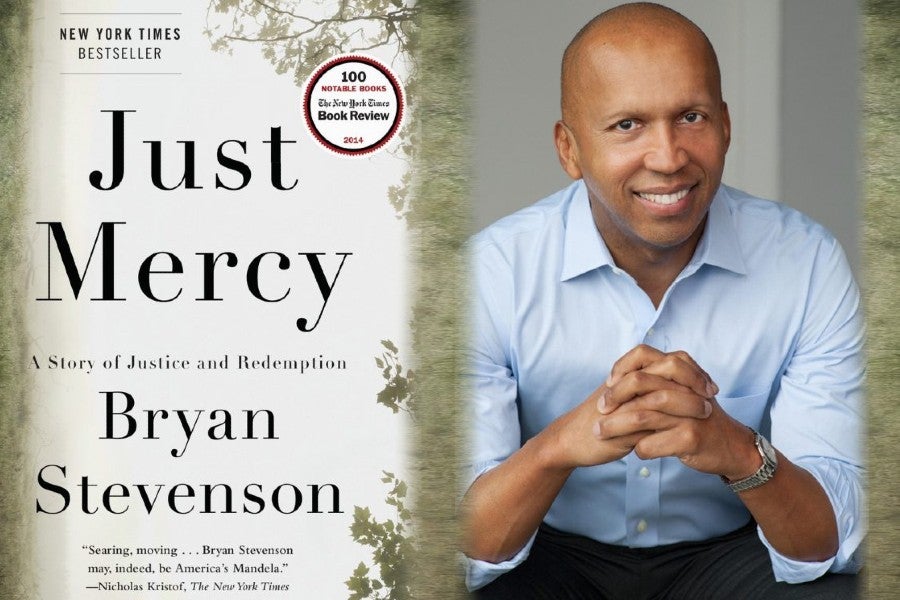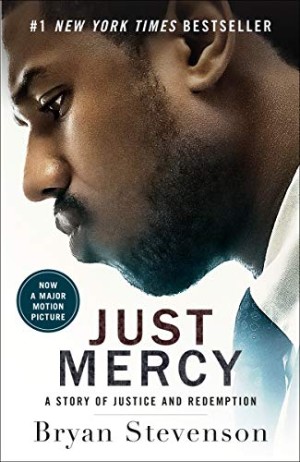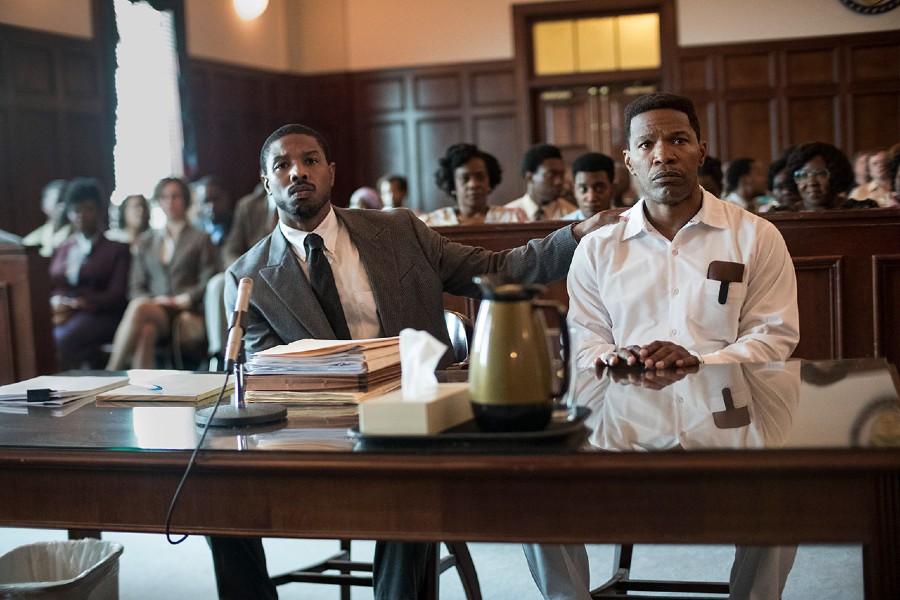Bestseller Just Mercy guides on-campus thoughts during fall semester
LIGHT program provides opportunities to explore racial inequality and justice issues through best-selling memoir
Janel Shoun-Smith | 615.966.7078 |

Thanks to an unusually timely decision back in the spring, Lipscomb University students and faculty had new opportunities this semester to explore and discuss issues of racial inequity and social class through Lipscomb’s LIGHT program, an academic intercultural competence initiative.

Each fall, the LIGHT program coordinates a common read project with accompanying events throughout the semester. This fall’s events were designed to explore the issues raised in Just Mercy, a best-selling book that explores the flaws in America’s system of justice through the story of Bryan Stevenson, a young lawyer who founded the Equal Justice Initiative.
Not only was Stevenson’s story of defending the poor and wrongly condemned released as a motion picture in 2019, but the national tragedies and uprisings throughout the summer of 2020 resulted in a rise in campus interest for reading and studying the work, said Cori Mathis, LIGHT program director.
A common read is a push to encourage everyone in a particular organization or geographic area to read the same book. Thanks to generous donations from alumni promoting diversity, equity, and inclusion training for new Lipscomb students, every fall 2020 freshman received a copy of Just Mercy. Given the nation’s political climate this fall, the LIGHT program’s directors saw an increase in interest from faculty this semester to use the common read book within their curriculum, Mathis said.
“We select books that reflect both what is going on in the world and our students' lives and concerns,” Mathis said. “We chose Just Mercy for 2020-21 because we know that there are members of the Lipscomb community whose lives have been touched by the incarceration system, and that's an important story to tell.”
The LIGHT program provided students with opportunities to view the 2019 film adaptation of Just Mercy online, to discuss the film in a Zoom panel discussion; to discuss the book in a book club format and to hear a virtual talk by a Nashvillian who personally experienced and overcame the biases inherent within the justice system over the past decades.

Cyntoia Brown Long
Cyntoia Brown-Long was convicted of robbery and murder in 2004 at age 16. Because she was tried as an adult and convicted of murder, Brown-Long received a particularly harsh sentence for a juvenile: life, meaning she was eligible for parole at age 67.
After a documentary was released about Long, who had been forced into prostitution at the time of the crime, a grassroots effort began to obtain clemency for her. That effort was successful in 2019, and Brown-Long now works as an advocate for restorative justice. Brown-Long is a graduate of Lipscomb University, made possible through the university’s LIFE (Lipscomb Initiative for Education) program.
“There is a grain of hope in her story that sometimes you don’t see,” Mathis said of the selection of Brown-Long as the LIGHT speaker for 2020. “We wanted to show our students that while there are many problems in our justice system that need to be addressed, the problem is not insurmountable. They as individuals can help. Cyntoia’s story is an example of how individuals can help.”
Many of the Lipscomb employees and students who came to know Brown-Long through her studies in the LIFE program advocated to the governor for her clemency.
Just Mercy tells the story of the career of its author, Bryan Stevenson, who founded the Equal Justice Initiative, a legal practice in Montgomery, Alabama, dedicated to defending those most desperate and in need: the poor, the wrongly condemned and women and children trapped in the farthest reaches of our criminal justice system.
The book outlines Stevenson’s work to save convicted murderer Walter McMillian from a death sentence, as well as other cases he took on through his legal career.

Lipscomb's annual social justice documentary film series HumanDocs featured the 2019 film adaptation of Just Mercy for students during the month of September.
Stevenson has helped achieve United States Supreme Court decisions that prohibit sentencing children under 18 to death or to life imprisonment without parole. He has assisted in cases that have saved dozens of prisoners from the death penalty, advocated for the poor, and developed community-based reform litigation aimed at improving the administration of criminal justice.
“Their concern is that incarceration in America today is retributive justice, not restorative justice,” Mathis said of Stevenson and his law firm. “Cyntoia’s case is a perfect example of how the systemic factors he discusses in the book feed into long-term incarceration for many offenders.”
2020 is the fourth year LIGHT has brought its academic programming to Lipscomb students. Previous common read books include Andrew Forsthoefel’s Walking to Listen, Margot Lee Shetterly’s Hidden Figures and Thi Bui’s The Best We Could Do. The program also assists faculty to develop LIGHT-focused courses and to infuse LIGHT concepts into the general education curriculum.
LIGHT builds on place-specific cultural education to provide ways to discuss cultural identity factors, said Mathis.
“There are a lot of ways to be in the world, and a responsible education will show a student all those ways. We talk about all the things that make us different and complete people,” she said. “Our goal in LIGHT is to exemplify the concept of neighboring within cultural education. To not just read books by someone who went to a place and wrote a book about that place, but to read books by and talk to the people from that place.”